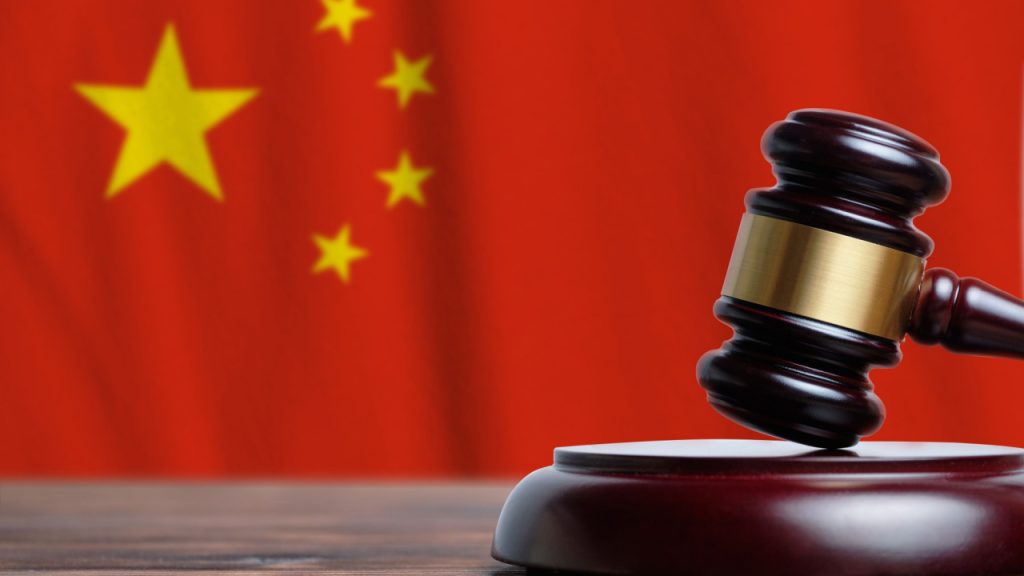Court in China Recognizes NFTs as Virtual Property Protected by Law – Regulation Bitcoin News

A court in the Chinese city of Hangzhou has determined that non-fungible tokens, or NFTs, represent virtual property protected by the laws in the People’s Republic. The ruling comes from a case over a dispute between a customer and a platform hired to sell a collection of tokens.
Hangzhou Internet Court Hears Case Involving Property Rights Over NFTs
A court in Hangzhou, the capital of the eastern Chinese province of Zhejiang, has reviewed a dispute between a client and a local digital art platform which canceled a sale of NFTs on his behalf. The user sued the company claiming the operation was terminated without his consent.
The platform, which issued a refund, explained that its move had to do with the inaccurate personal information it received from the plaintiff. According to its know-your-customer procedures, orders placed without real-name authentication should be canceled, an announcement detailed.
The Hangzhou Internet Court said that NFT collections bear the characteristics of property rights such as value, scarcity, controllability, and tradability while the digital collectibles are virtual properties. In the statement, quoted by Chinese crypto journalist Colin Wu, also known as ‘Wu Blockchain’ on Twitter, the judicial authority also emphasized:
The contract involved in the case does not violate the laws and regulations of our country, nor does it violate the actual policy and regulatory guidance to prevent economic and financial risks, and should be protected by the law.
The court further elaborated that “as a virtual artwork, an NFT digital collection itself condenses the creator’s original expression of art and has the value of related intellectual property rights. At the same time, NFT digital collections are unique digital assets formed on the blockchain based on the trust and consensus mechanism between blockchain nodes.”
Therefore, the Hangzhou court concluded, NFT collections belong to the category of virtual property. It also expressed its position that the transaction in the case represents the business activity of selling digital goods through the internet, hence it belongs to e-commerce activities and should be regulated as such under China’s “E-commerce Law.”
Last year, the Chinese government launched a nationwide crackdown on crypto-related activities like the issuance, trading, and mining of digital coins such as bitcoin. While allowing NFTs to be issued, regulators tried to curb speculation with them. To avoid associations with the crypto space, they are often called “digital collectibles” rather than “non-fungible tokens.”
In April of this year, reports revealed that the popular Chinese messaging app Wechat is suspending accounts linked to NFTs. And in September, it became known that the National Copyright Administration of China (NCAC) had launched a campaign to crack down on copyright infringement and piracy through digital collectibles.
What future do you expect for NFTs in China? Share your thoughts on the subject in the comments section below.
Image Credits: Shutterstock, Pixabay, Wiki Commons
Disclaimer: This article is for informational purposes only. It is not a direct offer or solicitation of an offer to buy or sell, or a recommendation or endorsement of any products, services, or companies. Bitcoin.com does not provide investment, tax, legal, or accounting advice. Neither the company nor the author is responsible, directly or indirectly, for any damage or loss caused or alleged to be caused by or in connection with the use of or reliance on any content, goods or services mentioned in this article.













